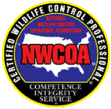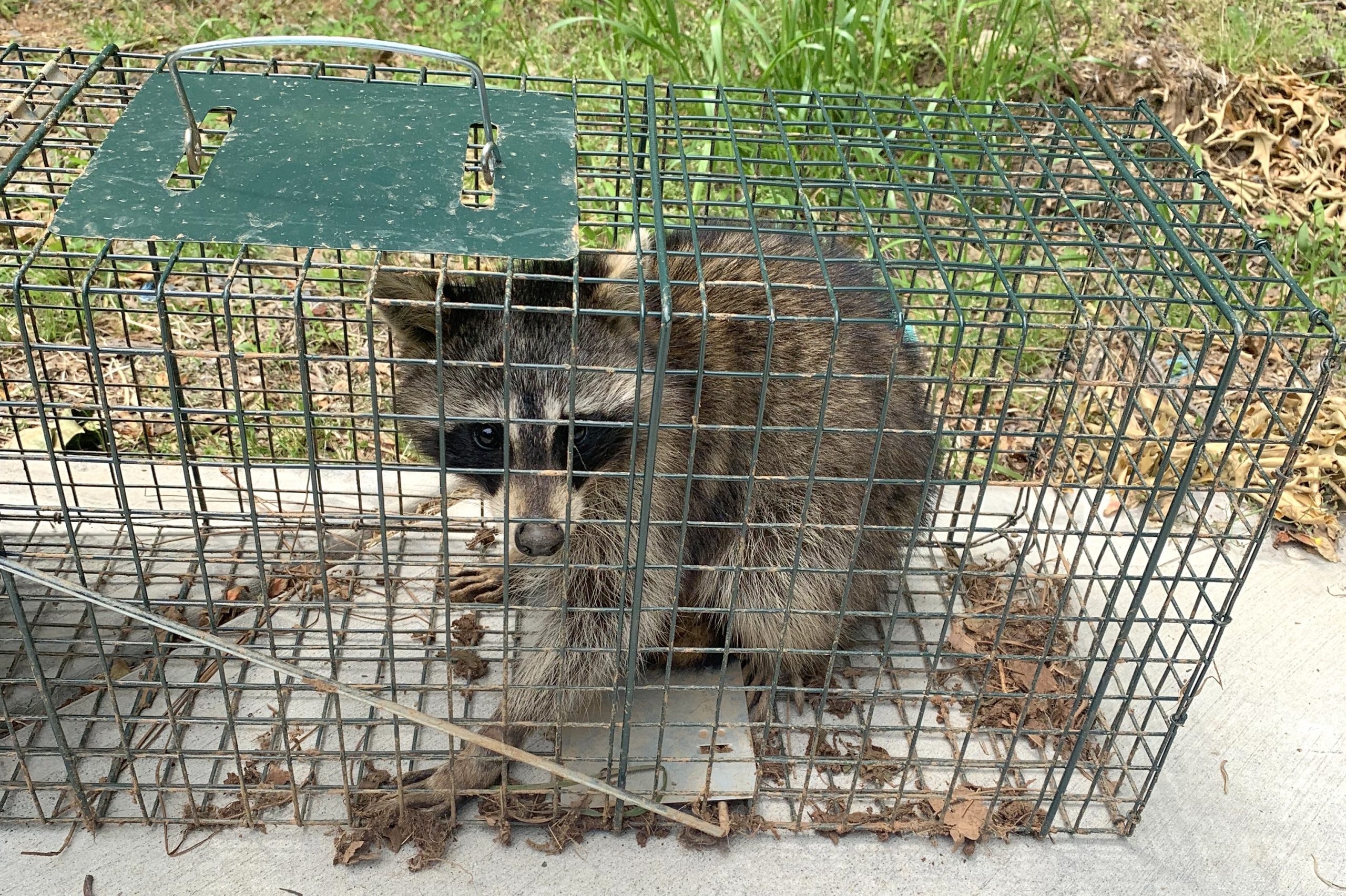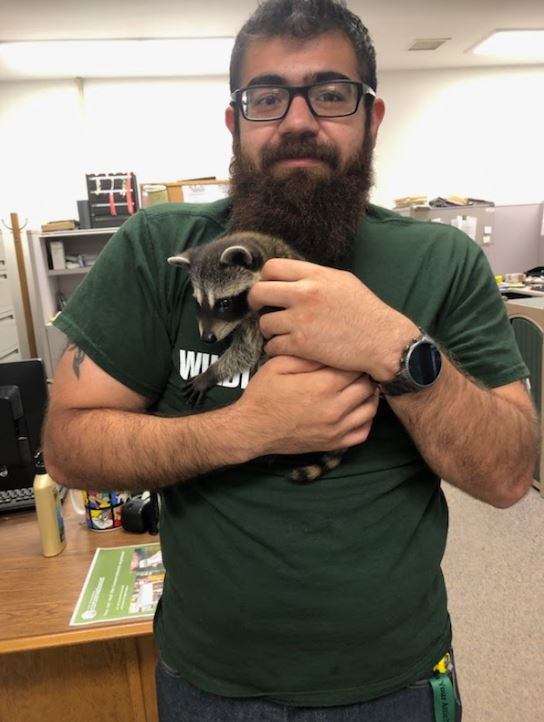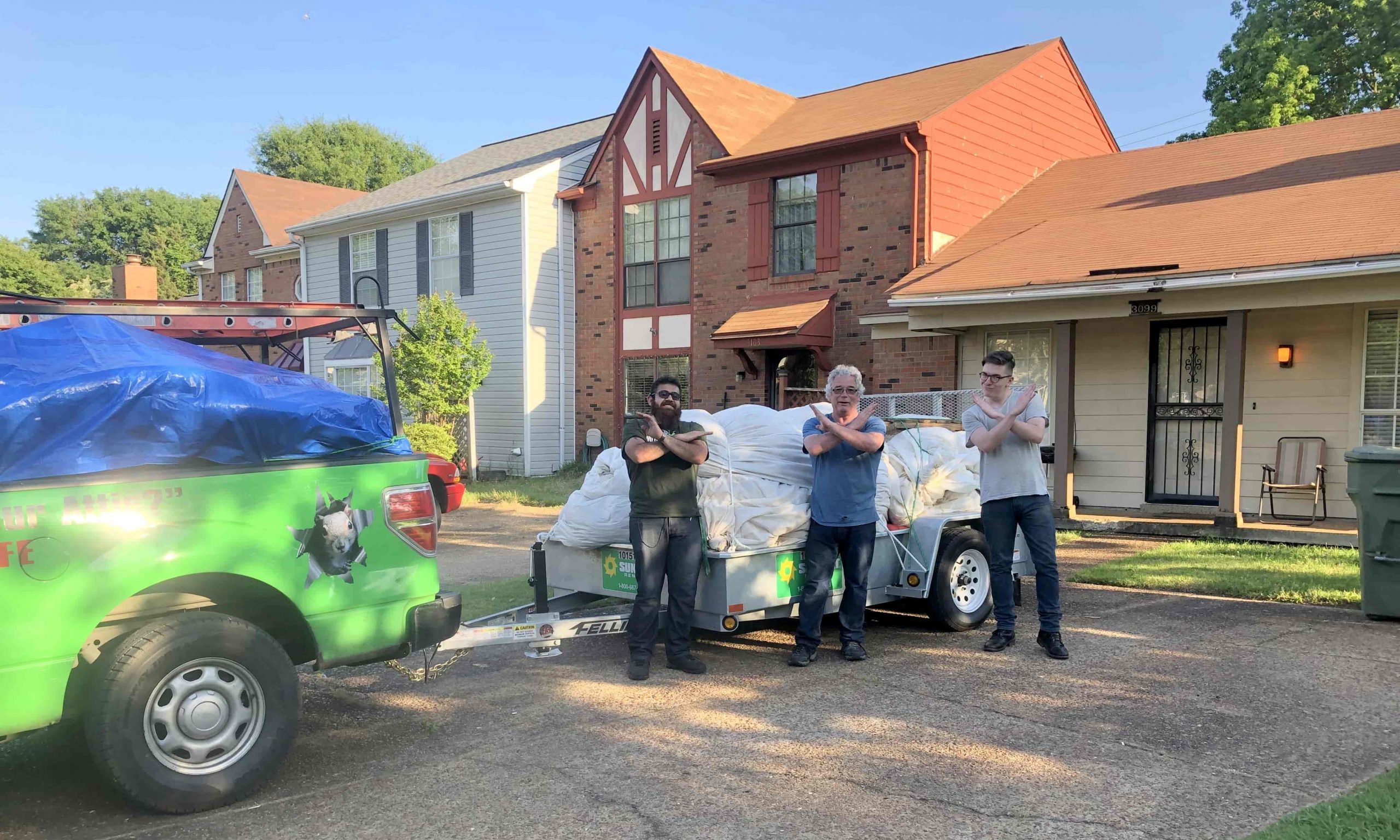
Call for Your Exclusive Wildlife Inspection Report.®
Raccoon Removal
Raccoons are fascinating creatures with great strength, agility, and adaptability. They are considered pests because they have adapted to living with humans. As great climbers, they easily gain access to attics and may even raise their littles there. Similarly, they wreak havoc in their path causing structural damages. Furthermore, their feces become a breeding ground for bacteria and they’re known to spread several diseases.
Here are some of the major problems caused by raccoons:
- Raccoons living in the attic or chimney.
- Tipping over garbage cans for food.
- Stealing pet food or birdseed.
- Confronting pets likes dogs.
- Risk of diseases.
Why Do You Have a Raccoon Problem?
Raccoons are attracted to human settlements for three fundamental reasons: food, water, and shelter.
Food & Water
Raccoons are omnivores and scavengers. This means that they will feed on anything, including fruits, vegetables, nuts, fish, frogs, and even dead animals. Not to forget the leftovers in the garbage and even pet food. A water bowl in a yard can also attract these nuisance creatures.
Shelter
Human settlements provide raccoons with warmth and comfort and they love it. That’s why they go through the stress of breaking through homes – because they know it’s worth it.
Raccoon Removal Process
Dealing with a raccoon infestation problem takes an integrated approach. Applying multiple methods simultaneously will give you a better chance of getting rid of them and keeping them at bay. For this, you should consider using a professional wildlife removal company like Wildlife X Team Memphis. But here’s how to go about it on your own.
Eliminating Attractants
The simple truth is that irrespective of what you do, if you do not get rid of the food in your yard or make it impossible for raccoons to reside in your home, then any effort to get rid of them will be short-lived. Here are some things to bear in mind:
- Properly secure your trash can so it is inaccessible to raccoons.
- Clear away fallen fruits, birdseed, and other food crumbs from your yard.
- Do not leave your pet food or leftovers outside.
- Make sure that you block all entry holes in your attic.
- Installing a chimney cap will make it impossible for them to access your chimney.
Get Quote for Your Exclusive Wildlife Inspection Report.®



Identify Areas of Damage
The goal at this stage is to identify where the raccoons are staying so you can create a strategic control plan. Places of high raccoon activities include attics, gardens, fish ponds, crawlspaces, trashcans, and more.
Raccoon Control Methods
After you know where the problem is arising from, it’s important to set up a strategy to either get rid of them or capture them. Wildlife X Team Memphis can help you implement the right control method to rid you of your raccoon infestation problem.
Live Trapping
This is the most effective means of getting rid of raccoons. If you have raccoons living in your attic, you will have to seal all entry holes except one, in which you install an exclusion device. Thereafter you can bait the trap with whole eggs or fresh fish to capture the raccoon. After the raccoon has been caught, it is important to inspect your attic to ensure that her babies are also removed. Another strategy is to first capture the babies when the mother is away and use them to lure their mother into a trap. The entire family can then be relocated to a location, at least, 10 miles from the capture site.
Repellents
There are a plethora of raccoon repellents available including ammonia, pepper, mothballs, and more. However, repellents are not effective for dealing with raccoons. If they still have access to food and shelter, they’ll put up with minor inconveniences.
Decontamination of Infected Spaces
If you have a raccoon living in your attic, chimney, or crawlspace, it’s certainly going to leave lots of droppings, nesting materials, hair, and food. These remnants attract insects and become a breeding ground for diseases like Salmonella or Leptospirosis. Raccoon feces may also contain roundworms. That’s why the infected space has to be decontaminated with an enzyme-based cleaner to destroy all germs. At Wildlife X Team Memphis, we help our clients decontaminate the infected spaces after removal is complete.
Repairs
The chewed wood, torn insulation materials, pipes, and even damaged electrical wires have to be repaired after a raccoon removal. More importantly, all potential entry holes or vulnerable spots have to be fortified to prevent reentry by another raccoon.
Wildlife X Team Memphis takes a holistic approach in creating an effective removal and control plan that will take care of your raccoon infestation problem. If you are dealing with raccoons and live in the Memphis area, call us today!
How to Exclude a Raccoon
Exclusion is an effective technique for keeping animals out of your home. At Wildlife X Team Memphis, we regularly conduct raccoon exclusion, squirrel exclusion, and bat exclusion. We like this technique because it often doesn’t require any trapping and still prevents animals from returning to your home. To learn more about how to prevent raccoons from entering your home visit raccooninformation.com
Exclusion basically means that you set up a sort of one-way door, meaning the animal can exit your home but won’t be able to enter. There are several tools we use to accomplish this. We strongly recommend hiring a professional to do this work – at Wildlife X Team Memphis, we have spent hundreds of hours excluding raccoons. However, if you want to try your hand at it, we have some practical tips for you.

Raccoon Exclusion Tips
Before we go any further, it’s important that you understand a bit about raccoon behavior. In general, the exclusion is not a good idea if the raccoon in question is female. That’s because in this case, it’s likely that there are babies close by. If you exclude a mother raccoon and its babies are still inside your home, prepare yourself for epic damage to your property.
This is another big reason why we strongly suggest you leave raccoon exclusion up to the experts like our team at Wildlife X Team Memphis. We know what to look for when determining if a male or female raccoon is your culprit. We can also provide expert raccoon removal services when you have a family of these creatures living in your home.
In general, raccoon exclusion is only a good idea if you know for certain that there is only one raccoon on your property, or there are only adult animals with no babies.
Raccoon Exclusion Doorway
There are really two methods for animal exclusion. The first uses an exclusion doorway. This is our preferred method for most animals because it doesn’t require any trapping. However, it can be less effective for raccoons since they are very determined, strong, and dexterous creatures.
This is basically a steel cage trap with a trapdoor on one end and an opening on the other. The basic concept is that the exclusion doorway goes over the raccoon’s entry point – the animal can then exit through the doorway but won’t be able to reenter.
The issue with an exclusion doorway is that sometimes, the raccoon will really want to get back inside your home. In this case, there isn’t much you can do to stop the animal. Raccoons are strong and have five fingers on each paw so they’re incredibly dexterous. If they want to, they can rip your home apart.
Raccoon Exclusion Trapping
Exclusion trapping is the second method. We prefer this method for raccoons since it deals with the animal and provides exclusion to prevent reentry. The basic concept is the same as the exclusion doorway, but you use a trap instead.
To set up a raccoon exclusion trap, you should use a large steel cage trap with a single door. Place it directly over the raccoon’s entry point so it will be forced into the trap as it leaves your home. You will need to secure the trap well so the raccoon can’t escape.
Once you have the animal trapped, then you can safely relocate it far away from your home. This will prevent undue damage from the animal trying to reenter buildings on your property. At this point, you should also seal the hole securely. Don’t skimp on this part – if you leave an easy entry point just barely sealed, you can be sure a raccoon will find it again.




